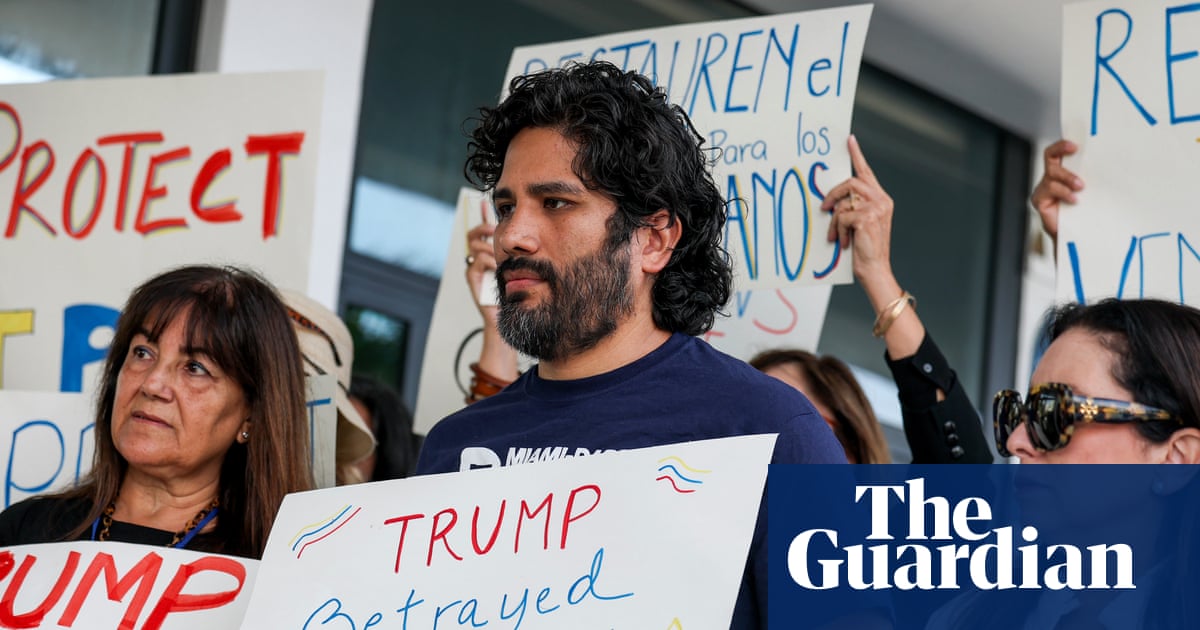Donald Trump signed an executive order on Thursday that aims to allow cryptocurrency and other alternative assets like private equity and real estate to be included in the investments in 401(k) retirement accounts.
The order smooths the way for fund managers to tap into trillions of dollars of Americans’ retirement savings. It could open up a vast new funding source to managers of so-called alternative assets outside stocks, bonds and cash, though critics say it also could bring too much risk into retirement investments. Such a move would be a boon for big alternative asset managers by opening the $12tn market for retirement funds, known as defined contribution plans, to their investments.
Trump’s executive order is part of his administration’s broader embrace of the cryptocurrency lobby and rollback of regulations on digital currencies. Formerly a skeptic about crypto who said bitcoin “seemed like a scam”, Trump has this year launched his own lucrative cryptocurrency enterprise, courted crypto supporters and promised to make the US into the “crypto capital of the world”.
“A combination of regulatory overreach and encouragement of lawsuits filed by opportunistic trial lawyers has stifled investment innovation,” Trump said in the order. “My Administration will relieve the regulatory burdens and litigation risk that impede American workers’ retirement accounts from achieving the competitive returns and asset diversification necessary to secure a dignified, comfortable retirement.”
There is concern among some analysts that allowing cryptocurrency to be included in 401(k) contributions carries a high degree of risk, however, given that crypto is inherently speculative and in recent years has been the subject of rampant fraud.
“Opening up the $9tn 401(k) industry to alternative assets overall is reasonable, but if these assets and sectors are highly speculative and underregulated, it could be a big mistake,” said Anil Khurana, executive director of Georgetown University’s Baratta Center for Global Business.
Trump also issued a separate executive order on Thursday targeting the alleged “debanking” of conservatives, promoting a longstanding rightwing grievance that banks refused them access to their services on political grounds. Prominent Silicon Valley investors took up the issue over the past year as part of a push to ease regulatory scrutiny of crypto assets.
The order on 401(k) contributions directs the labor secretary to consult with her counterparts at the treasury department, the Securities and Exchange Commission and other federal “regulators to determine whether parallel regulatory changes should be made at those agencies”, a White House statement said.
The new investment options carry lower disclosure requirements and are generally less easy to sell quickly for cash than the publicly traded stocks and bonds that most retirement funds rely on. Investing in them also tends to carry higher fees and, in the case of cryptocurrency, exposes retirees to a market known for its volatility.
In defined contribution plans, employees make contributions to their own retirement account, frequently with a matching contribution from their employer. The invested funds belong to the employee, but unlike a defined benefit pension plan, there is no guaranteed regular payout upon retirement.
Whatever changes may come from Trump’s order, it likely will not happen overnight, private equity executives say. Plaintiffs’ lawyers are already preparing for lawsuits that could be filed by investors who do not understand the complexity of the new forms of investments.
The world’s largest asset manager, which lobbied for the change, is not waiting. BlackRock plans to launch its own retirement fund that includes private equity and private credit assets next year. However, CEO Larry Fink acknowledged in a recent call with analysts that the change may not be an immediate boon for the industry.
after newsletter promotion
“The reality is, though, there is a lot of litigation risk. There’s a lot of issues related to the defined contribution business,” Fink said. “And this is why the analytics and data are going to be so imperative way beyond just the inclusion.”
The Department of Labor issued guidance during Trump’s previous presidency on how such plans could invest in private equity funds within certain limits, but few took advantage, fearing litigation.
Proponents argue that younger savers can benefit from potentially higher returns on riskier investments in funds that get more conservative as they approach retirement.
Democratic senator Elizabeth Warren wrote in June to the chief executive of annuity provider Empower Retirement, which oversees $1.8tn in assets for more than 19 million investors, asking how retirement savings placed in private investments could be safeguarded “given the sector’s weak investor protections, its lack of transparency, expensive management fees, and unsubstantiated claims of high returns”.

 German (DE)
German (DE)  English (US)
English (US)  Spanish (ES)
Spanish (ES)  French (FR)
French (FR)  Hindi (IN)
Hindi (IN)  Italian (IT)
Italian (IT)  Russian (RU)
Russian (RU)  4 weeks ago
4 weeks ago
























Comments